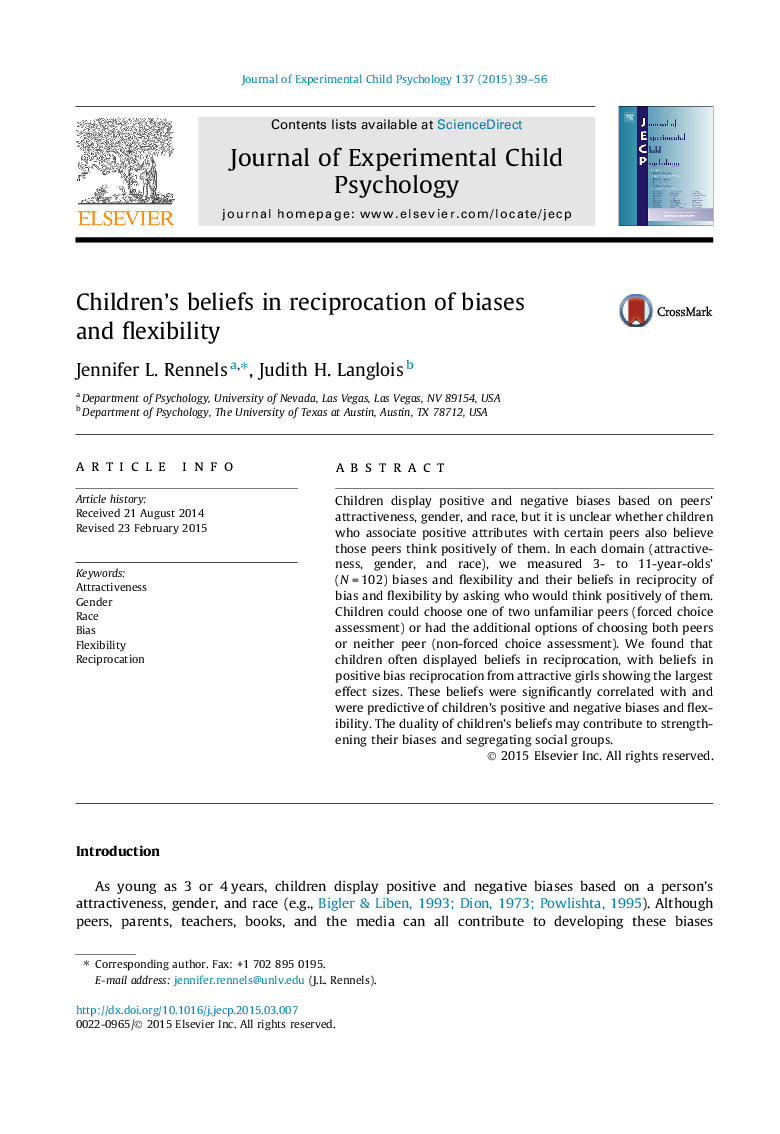| کد مقاله | کد نشریه | سال انتشار | مقاله انگلیسی | نسخه تمام متن |
|---|---|---|---|---|
| 7275013 | 1473475 | 2015 | 18 صفحه PDF | دانلود رایگان |
عنوان انگلیسی مقاله ISI
Children's beliefs in reciprocation of biases and flexibility
ترجمه فارسی عنوان
اعتقادات کودکان در برخورد با تعصبات و انعطاف پذیری
دانلود مقاله + سفارش ترجمه
دانلود مقاله ISI انگلیسی
رایگان برای ایرانیان
کلمات کلیدی
جذابیت جنسیت، مسابقه، تقصیر انعطاف پذیری، متقابل
موضوعات مرتبط
علوم انسانی و اجتماعی
روانشناسی
روانشناسی رشد و آموزشی
چکیده انگلیسی
Children display positive and negative biases based on peers' attractiveness, gender, and race, but it is unclear whether children who associate positive attributes with certain peers also believe those peers think positively of them. In each domain (attractiveness, gender, and race), we measured 3- to 11-year-olds' (NÂ =Â 102) biases and flexibility and their beliefs in reciprocity of bias and flexibility by asking who would think positively of them. Children could choose one of two unfamiliar peers (forced choice assessment) or had the additional options of choosing both peers or neither peer (non-forced choice assessment). We found that children often displayed beliefs in reciprocation, with beliefs in positive bias reciprocation from attractive girls showing the largest effect sizes. These beliefs were significantly correlated with and were predictive of children's positive and negative biases and flexibility. The duality of children's beliefs may contribute to strengthening their biases and segregating social groups.
ناشر
Database: Elsevier - ScienceDirect (ساینس دایرکت)
Journal: Journal of Experimental Child Psychology - Volume 137, September 2015, Pages 39-56
Journal: Journal of Experimental Child Psychology - Volume 137, September 2015, Pages 39-56
نویسندگان
Jennifer L. Rennels, Judith H. Langlois,
